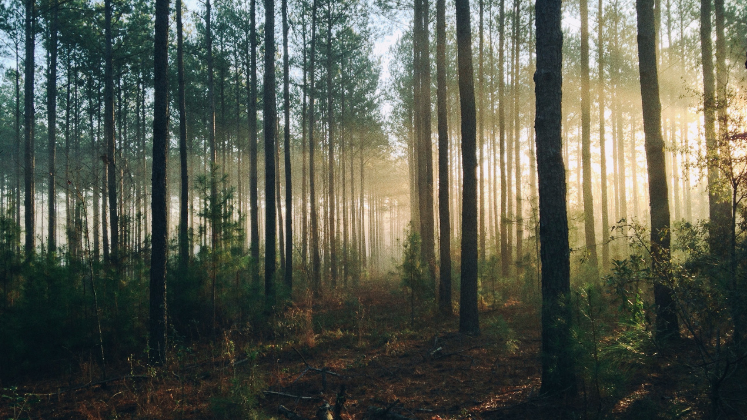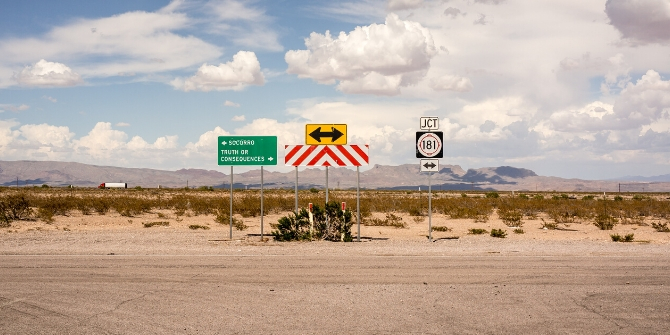What would sustainable research and higher education mean as a vocation? Drawing on the sociologist Max Weber’s famous lecture on science as a vocation, Gorgi Krlev, outlines a vision of sustainable science, arguing that for academic research to effectively contribute to resolving the major challenges facing society it must embrace profound change on four levels.
The usual academic job application includes a cover letter, CV, evidence about courses taught, and most importantly, a list of journal publications. However, I recently came across a notable addition to this list, hopefully one that does not remain a singularity: an institution asking for a “sustainability statement as a scholar” that lays out the candidate’s vision and their personal way of embodying sustainability.
what would it mean for a scholar to make sustainable science their vocation?
The statement requested was for a position explicitly focused on sustainability management. However, the question of how academics intend to play their part in understanding and promoting sustainable development, that is make their contribution to addressing grand societal challenges, is becoming louder across the social sciences. Journals for example call their contributors to move from what is interesting to what is important, and accolades are bestowed to those who not only contribute to understanding, but who also help alleviate a social problem.
Yet, it seems more profound contributions to sustainability are currently being held back less by ambition, than by a research and higher education system that is incentivized to be narrow and inward-looking. So, what would it mean for a scholar to make sustainable science their vocation?
Be bold
Researchers must be more concerned with “why” and less with “what”. Research questions need to be bold. This does not mean bold as in finding the “big gap” and identifying pertinent questions that require more research, but as in re-embracing radical design and imagination and moving from diagnosis to prescription. Carrying out bold research may require embracing elements of slow science and even failure. It does not mean that we should further slow the “glacial pace of academic publishing”, but that we should design research processes that are truly collaborative and where the research is not neatly geared towards producing another academic paper. The same principles could be extended to the entire research process, for instance by acknowledging the vital role of grant applications (failed or successful, and with all their eccentricities) in academic capacity building, which is essential for addressing complex sustainability challenges.
Be comprehensive
The sustainable vocation should be driven by the desire to understand important phenomena in their entirety. This may require a shift from contributing to a neat stream of theory, or specialising in a certain methodology, to applying combinations to meet the needs of the problem at hand. What has been stated in relation to mission-oriented policy for sustainable development, is likely true for related areas of research. It needs to focus on understanding the interconnectedness of problems and puzzles, beyond disciplinary boundaries and single actors. Much as in the way COVID-19 has mobilised researchers from across many disciplines, research of a social scientist who seeks to contribute to sustainability might range from examining petitions to policies, and from studying social movements to hedge funds.
Be relevant
Scholars need to work with, not only talk to practitioners. This does not mean contracted industry research, but instances of co-creation, which occur when people devote time, energy and passion into open-ended processes that might not neatly fit into yet another pre-defined project, yet still drive innovation and impact. Academics are ideally placed to be brokers between actors from different ‘worlds’ and should be encouraged to apply their knowledge by serving on boards, advising student initiatives, or providing expert knowledge to international institutions, but such forms of service are often perceived as mere additions to their responsibilities as academics. Social scientists should aim to make their voices heard across the board—rather than from one discipline—if as sociologist Armin Nassehi puts it “[they do not want] their positions’ existence to cling merely on their own survival rather than the durability of the post” (author’s translation).
Be educators for all
Perhaps the most neglected way in which academics influence the future is through shaping the minds and competencies of their students. While lockdowns have pushed academics’ skills in teaching online, we still mainly see better teaching at the level of individual educators. What might higher education look like if instead efforts are directed to co-developing content and systemizing and sharing existing resources? If the benefits of academic education were more broadly shared across society, with greater involvement from students in content creation, as well as pursuing geographic inclusivity and life-long learning? Allied to this vision of sustainability would be more developed approaches to action-learning formats and forms of learning that focus on social problem solving.
Becoming sustainable?
While there seems to be a deep-seated longing in many academics to do all the above. Rising pressure to publish in well-ranked journals and a pervasive culture of overwork and burnout, can make the current academic system in itself feel unsustainable and any alternatives seem to be wishful thinking.
In his famous lecture, “Science as a Vocation” the sociologist Max Weber laid out a number of principles about the nature of science as a calling and its place within society. Whilst I do not advocate for a return to this past, they provide a way of thinking about what it might mean for science to become more sustainable and more sustainability oriented.
In line with Weber’s arguments, we need to foster far-reaching research and thinking that carries a vision for the future, rather than the pursuit of academic trends. One obstacle to achieving this are our own expectations of academia. It is not helpful to have professors, as I have heard, advise their junior peers that writing books, to address an interconnected set of issues, is only for people over 40, or to stay away from certain topics or concepts, since there are less contested alternatives. If anything, we need more, not less contestation.
It also means that we need to embrace a shift away from the image of the scientist as lone genius, towards a more distributed, collective, and co-operative modes of value creation. This includes cultivating more of what Weber considered the rare breed of individuals, who are good researchers and educators at the same time—and who seek to overcome resistance to educational innovation. Such aspects should become core parts of a wider understanding of academic impact, which continues to be connected largely to published papers.
It also means that we need to embrace a shift away from the image of the scientist as lone genius, towards a more distributed, collective, and co-operative modes of value creation
In direct opposition to Weber’s position, and at a time when critical studies have again come under attack, despite the need to review power dynamics and inequalities for sustainable development. We are past a stage where blanket value-neutrality should rule academic research and teaching. The normative grounding of research rather than being denied should be surfaced, as stressed for example in the Responsible Research and Innovation Initiative of the European Commission. While objectivity in appreciating the evidence and rhetorical arguments needs to be upheld, fostering sustainable development requires a clear assessment of how these goals are inherently tied to political positions.
Although some commentators see reasons for a resurgence of academics as public intellectuals, who may influence society for the better, it is important to realise that we are likely to fail addressing the integrated problems of sustainability with segregated approaches. If we academics want to make sustainable science our vocation, we need to stop playing by the rules so many seem to disagree with and start being the change.
Note: This article gives the views of the author, and not the position of the Impact of Social Science blog, nor of the London School of Economics. Please review our Comments Policy if you have any concerns on posting a comment below.
Image Credit: Photo montage, Max Weber 1918, via Wikimedia Commons (Public domain), Eric Barbeau, & Pawel Nolbert, via Unsplash.









Thanks for this very nice blog. For the many who are active in the international Open Science movement it is exactly this logic that motivates us. In that spirit and concept of Open Science it is about improving scientific and societal impact, just like it is argued here by Gorgi Krlev. The main theme and the basis for this improvement is public engagement, the relationship with ‘the public and its problems’ and the corresponding process of problem choice and agenda setting. The EU Open Science program ( https://ec.europa.eu/info/research-and-innovation/strategy/goals-research-and-innovation-policy/open-science_en )may be considered to be the logical sequel of the EU Responsible Research and Innivation program that has been running for quite some time already ( https://ec.europa.eu/programmes/horizon2020/en/h2020-section/responsible-research-innovation). In many EU member states, the UK and elsewhere propgrams are underway to make the transition to open science possible, also @UtrechtUniversity. (https://www.uu.nl/en/research/open-science)
Thank you very much, Frank. Excellent point about the EU Open Science programme being an updated, cutting-edge reference point for some (if not most, or all) of the principles I wanted to highlight. For me it was important to stress the aspect of surfacing normativity, and also that research more generally should follow guideposts for studying and generating innovation that we hope will contribute to sustainability. Fully agree that the open science movement as such embodies all characteristics I believe research and higher education FOR sustainability, and a research and higher education system that IS in itself sustainable, must embrace!
I agree with most of this. In our Department we are praised to some extent for ‘engagement’ contributions, using a different language and metrics, and a lot of us think like you. I don’t like the sustainable science/development agenda though, since from the UN down, it has been coopted to accept ‘growth’ as part of sustainability [this was in the Brundtland report, so the problem goes back a long way], does not challenge capitalism much [ saying it needs to be greener], and does not support any kind of social revolution or protest to solve climate change, gross inequalities and other ills, largely trusting in technological innovation and ‘better governance’.
Thanx Gorgi, well put. Will share with colleagues 👍 And congrats w tenure 🥳
Frank
Glad to hear that! And thank you!